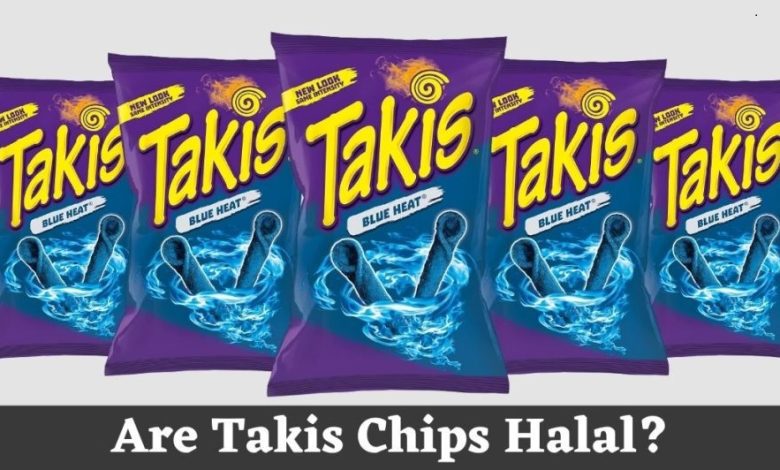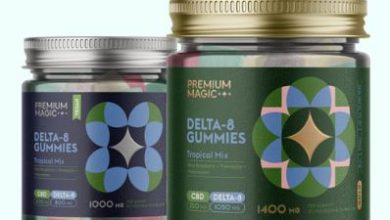Are Takis Halal? Can Muslim Eat This Snack

In our increasingly diverse world, food choices have become more intricate, especially for those with dietary restrictions. One such question that often arises among individuals with specific dietary needs is whether Takis, the popular fiery snack, can be classified as Halal. In this extensive article, we aim to provide an in-depth exploration of Takis, dissecting their ingredients, production processes, and certification status to answer the critical question, “Is Takis Halal or Haram?”
Introduction to the Fiery Sensation
Before we delve into the Halal status of Takis, let’s get better acquainted with this snack sensation that has taken the culinary world by storm.
The Enigma of Takis
Takis, crafted by Barcel, a Mexican snack food company, are celebrated for their unique and intense spiciness. These rolled corn tortilla chips have captured the hearts (and taste buds) of snack enthusiasts around the globe. The amalgamation of a crunchy texture and a burst of bold flavors has made Takis a sought-after snack option for those who crave an electrifying culinary experience.
Are Takis Halal
To determine whether Takis can be categorized as Halal, it is imperative to scrutinize their ingredients meticulously. Let’s break down the components that make up this zesty snack.
1. Corn Flour
Corn flour takes center stage as the primary ingredient in Takis. Fortunately, corn is typically considered Halal in most dietary guidelines, setting a promising tone for those seeking Halal snack options.
2. Vegetable Oil
Vegetable oil plays a pivotal role in Takis, contributing to their texture and mouthfeel. While vegetable oil, in general, is considered Halal, it is essential to recognize that the specific type of oil used may vary among different brands. However, major brands tend to employ vegetable oil that aligns with Halal dietary principles.
3. Artificial Flavors and Colors
Takis are renowned for their vivid colors and intense flavors. These artificial flavors and colors, while sometimes a cause for concern, are typically considered Halal unless sourced from non-Halal origins. Manufacturers often utilize synthetic additives that comply with Halal standards.
4. Salt and Spices
Salt and spices are the heart of Takis, providing that distinctive savory and spicy profile. These seasonings are commonly found in Halal diets, adding to the snack’s allure.
5. Citric Acid
Citric acid serves as an acidity regulator and flavor enhancer in Takis. Derived from natural sources, citric acid is undeniably considered Halal.
6. Preservatives
To extend their shelf life, Takis contain preservatives. In general, preservatives are deemed Halal unless obtained from non-Halal sources.
The Takis Production Process
To ascertain the Halal status of Takis, it’s crucial to understand their production process. Let’s take a closer look at how these spicy chips are created.
1. Mixing Ingredients
The journey begins with the amalgamation of ingredients, including corn flour, vegetable oil, and spices. This concoction forms the dough used to craft the iconic rolled chips.
2. Shaping and Rolling
The dough is then shaped into the signature rolled form that characterizes Takis. This unique shape sets them apart from conventional tortilla chips.
3. Frying
The rolled chips undergo the frying process until they reach the desired level of crispiness. This step adds to the snack’s irresistible texture.
4. Seasoning
Arguably the most critical stage in Takis production, the chips are lavishly seasoned with a blend of spices to infuse that unmistakable fiery flavor. It is here that the intense spiciness that Takis are famed for truly emerges.
Which Takis is Halal
Having delved into the ingredients and production processes, let’s now explore the certification status of Takis concerning Halal dietary requirements.
1. Barcel’s Statement
One of the factors contributing to the ongoing debate regarding Takis’ Halal status is the absence of an official statement from Barcel, the company behind the snack. This lack of a clear declaration has fueled the discourse within the Muslim community.
2. Third-Party Certification
While Barcel itself may not have explicitly certified its products as Halal, some variations of Takis have obtained Halal certification from reputable third-party organizations. However, it is imperative to note that this certification may not encompass all flavors and variants of Takis.
3. The Controversy Surrounding Takis
The Halal status of Takis remains a subject of debate among individuals who adhere to specific dietary restrictions. Here, we will explore some of the key points in this ongoing discussion.
4. Cross-Contamination Concerns
One of the primary concerns raised by individuals seeking Halal snacks is the potential for cross-contamination. Takis are manufactured in facilities that may also handle non-Halal products, raising questions about the risk of contamination. While some argue that stringent quality control measures mitigate these concerns, others maintain a level of caution.
5. Lack of Clarity
The absence of an official Halal certification statement from Barcel has contributed to the perplexity surrounding Takis. While some consumers feel comfortable consuming Takis based on ingredient analysis and third-party certifications, others opt for a more cautious approach.
Navigating the Takis Dilemma
In the quest to determine whether Takis are Halal, it becomes evident that the answer is not straightforward. While the ingredients used in Takis align with Halal dietary guidelines, the absence of an official statement from Barcel and concerns about cross-contamination leave room for ambiguity.
For individuals who strictly adhere to a Halal diet, it is advisable to exercise caution when consuming Takis. Whenever possible, opt for products with recognized Halal certification. Prioritizing your dietary preferences and making informed choices when selecting snacks is crucial.
FAQs (Frequently Asked Questions)
To address some common queries regarding Takis and their Halal status, we’ve compiled a comprehensive list of frequently asked questions.
1. Are all Takis flavors Halal?
Not all Takis flavors are necessarily Halal. While some variants have obtained Halal certification, others have not. To determine the status of a specific flavor, it is essential to check the packaging for relevant certification labels or contact the manufacturer for clarification.
2. Can I trust third-party Halal certification for Takis?
Third-party Halal certification organizations are generally reliable. However, it is crucial to verify the specific product and certification details to ensure they align with your dietary preferences.
3. Are there any Halal-certified alternatives to Takis
Yes, the market offers several other Halal-certified snack options exploring various potato chips, pretzels, nuts, and other savory snacks that carry recognized Halal certification.
4. What should I do if I cannot find Halal-certified Takis in my area?
If Halal-certified Takis are not readily available in your locality, don’t worry. You can explore alternative Halal snacks or even try making your spicy snacks at home using Halal ingredients. Numerous recipes and resources are available online to guide you in this endeavor.
5. Is it safe for individuals with dietary restrictions to consume Takis without Halal certification?
While the ingredients in Takis themselves may align with Halal dietary guidelines, the potential for cross-contamination remains a concern for some individuals. It is advisable for those with strict dietary restrictions to exercise caution and prioritize products with clear Halal certification to avoid any potential issues.
6. What are the health implications of consuming Takis regularly?
Takis, like many snacks, should be enjoyed in moderation. Regular consumption of highly processed snacks like Takis can contribute to health issues such as obesity and high blood pressure due to their high salt and fat content. It is essential to balance your snack choices with a diverse and nutritious diet.
Conclusion
The halal status of Takis is a nuanced and debatable topic within the community of individuals with specific dietary preferences. While the primary ingredients in Takis, such as corn flour and vegetable oil, are typically considered halal, the presence of various seasonings and the potential for cross-contamination raise concerns. To ensure compliance with Islamic dietary laws, individuals seeking clarity can check for specific product flavors, scrutinize ingredient lists, and look for official halal certifications on Takis packaging. It’s important to note that interpretations of halal may vary, so consulting with a knowledgeable Islamic authority can provide further guidance in making informed dietary choices.





